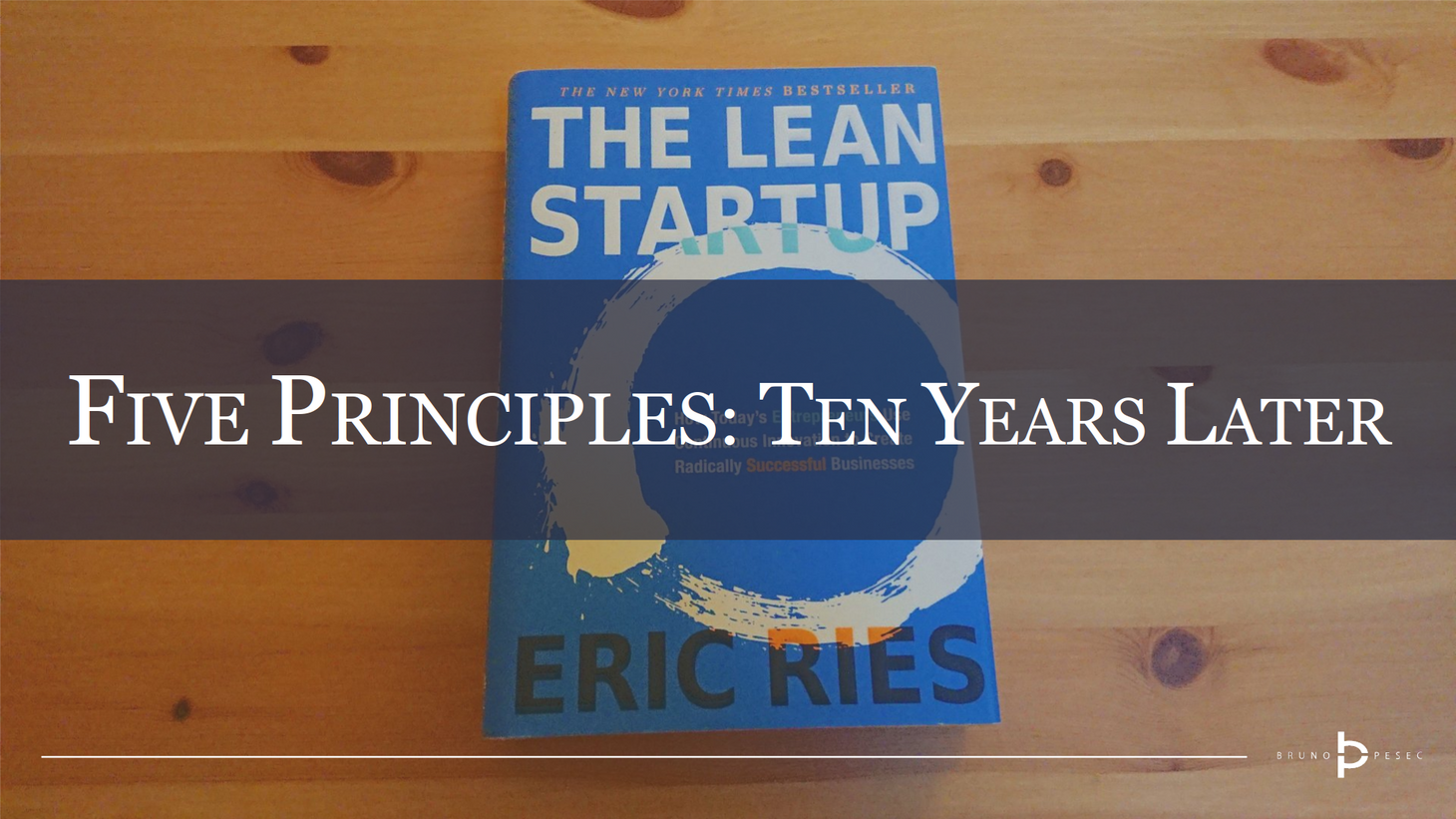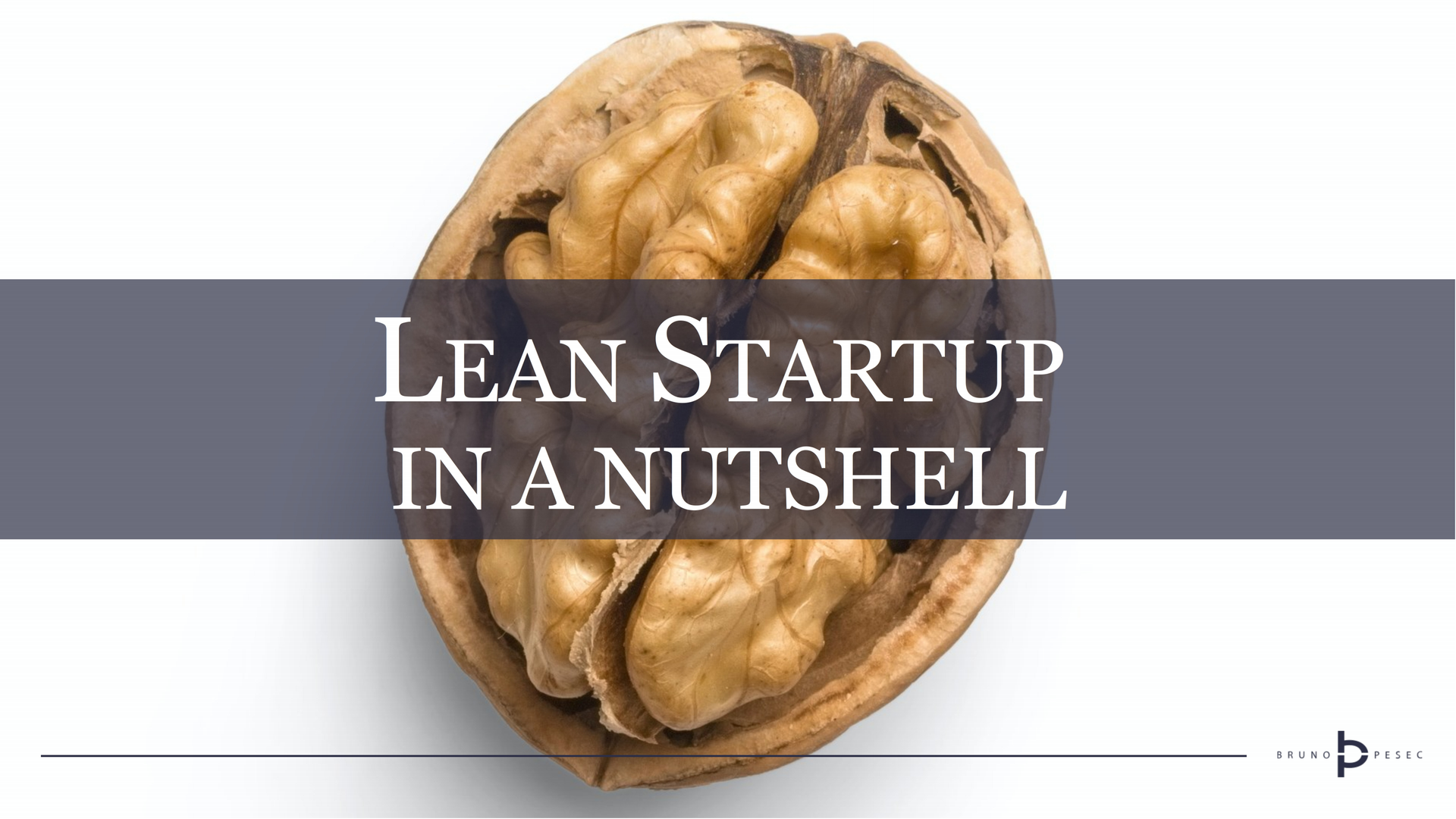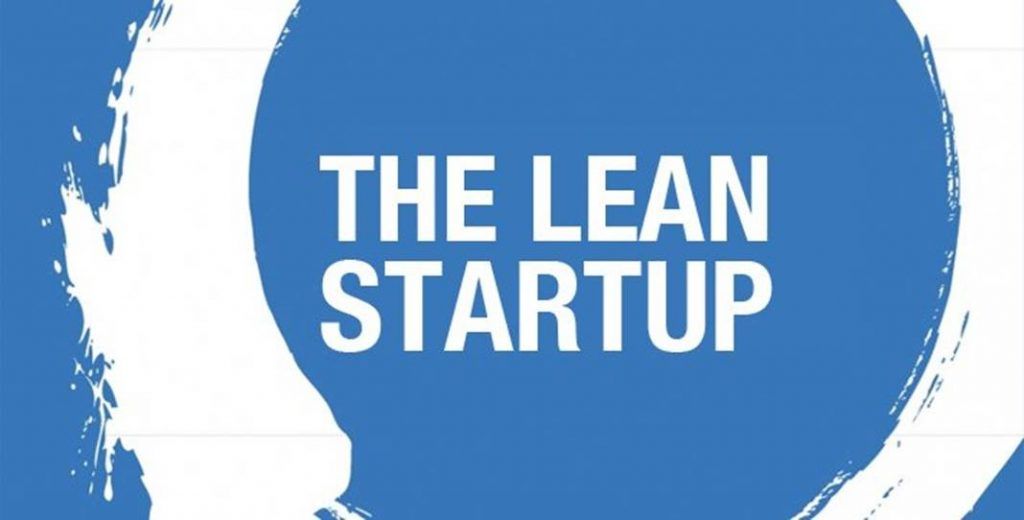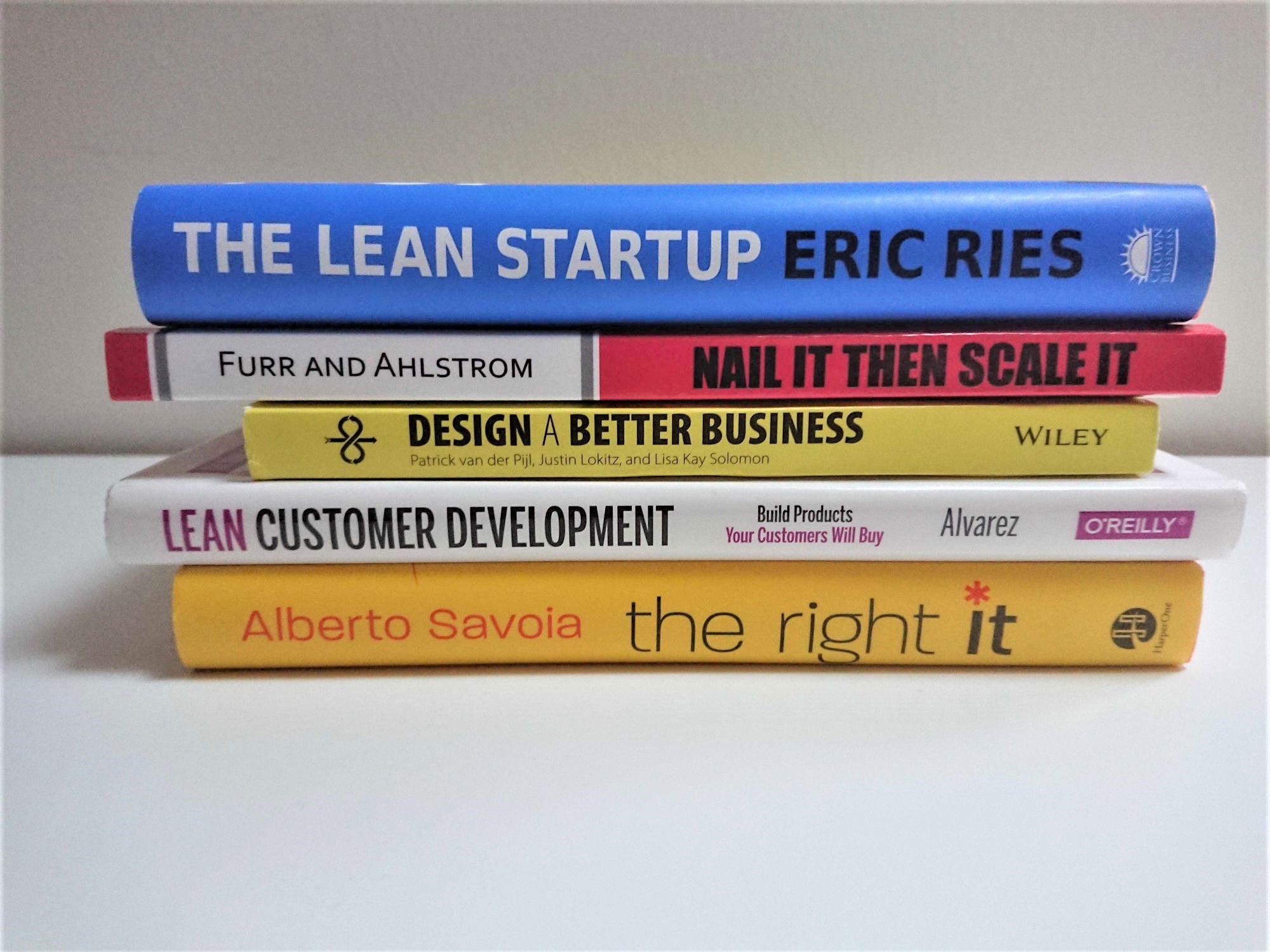Five principles of the Lean Startup: 10 years later
Is Lean Startup still relevant?

It's already been 10 years since The Lean Startup by Eric Ries has been published. It feels right to pause for a moment, and reflect upon it's five principles.
For the uninitiated, Lean Startup is a methodology for developing businesses through a combination of business-hypothesis-driven experimentation, iterative product releases, and validated learning.
Besides bringing us jargon like pivoting and minimum viable product, perhaps its biggest contribution was marrying different development mindsets into one (product, business, customer), ultimately striving to create businesses based on real (versus perceived) customer demand.
Eric tried to capture the mindset by codifying following Lean Startup principles:
- Entrepreneurs are everywhere: "You don't have to work in a garage to be in a startup."
- Entrepreneurship is management: "A startup is an institution, not just a product, so it requires management, a new kind of management specifically geared to its context."
- Validated learning: "Startups exist not to make stuff, make money, or serve customers. They exist to learn how to build a sustainable business. This learning can be validated scientifically, by running experiments that allow us to test each element of our vision."
- Innovation Accounting: "To improve entrepreneurial outcomes, and to hold entrepreneurs accountable, we need to focus on the boring stuff: how to measure progress, how to setup milestones, how to prioritize work. This requires a new kind of accounting, specific to startups."
- Build-Measure-Learn: "The fundamental activity of a startup is to turn ideas into products, measure how customers respond, and then learn whether to pivot or persevere. All successful startup processes should be geared to accelerate that feedback loop."
What has changed in the last ten years?
Well, it seems that most of the Lean Startup authors learned that startups in fact don't have that much money and that they are better off selling their services (thoughts?) to large enterprises.
Most have stopped talking about "entrepreneurial management" and moved to innovation management. We also somehow managed to go from Steve Blank admonishing us that "a startup is not a smaller version of a large company" to "companies are not startups."
Validated learning and innovation accounting remain as the most challenging (and poorly practised) elements. I'm surprised that there hasn't been more on these two topics in the last few years. I suspect it's due to both being relatively boring while also requiring deep knowledge of different disciplines.
That's why I sat down and wrote a concise step-by-step guide for creating validated knowledge (you can read it here). I also collaborated with Dan Toma and Esther Gons on the innovation accounting book, which will be the first offering comprehensive coverage of that field (more on that here).
I always found Build-Measure-Learn to be a good gateway to the Plan-Do-Study-Act loop. It's a fine mental model, but Deming's is still superior.
What is next? A lot of contributions from the Lean Startup movement have been absorbed by two of it's predecessors: lean and agile. I expect the Lean Startup brand to fade away, with it's main principles living on under different brand(s).
Putting that aside, it's still a method worth learning. If you decide on doing so, I suggest the following:



Bruno Unfiltered
Subscribe to get the latest posts delivered right to your inbox. No spam. Only Bruno.





